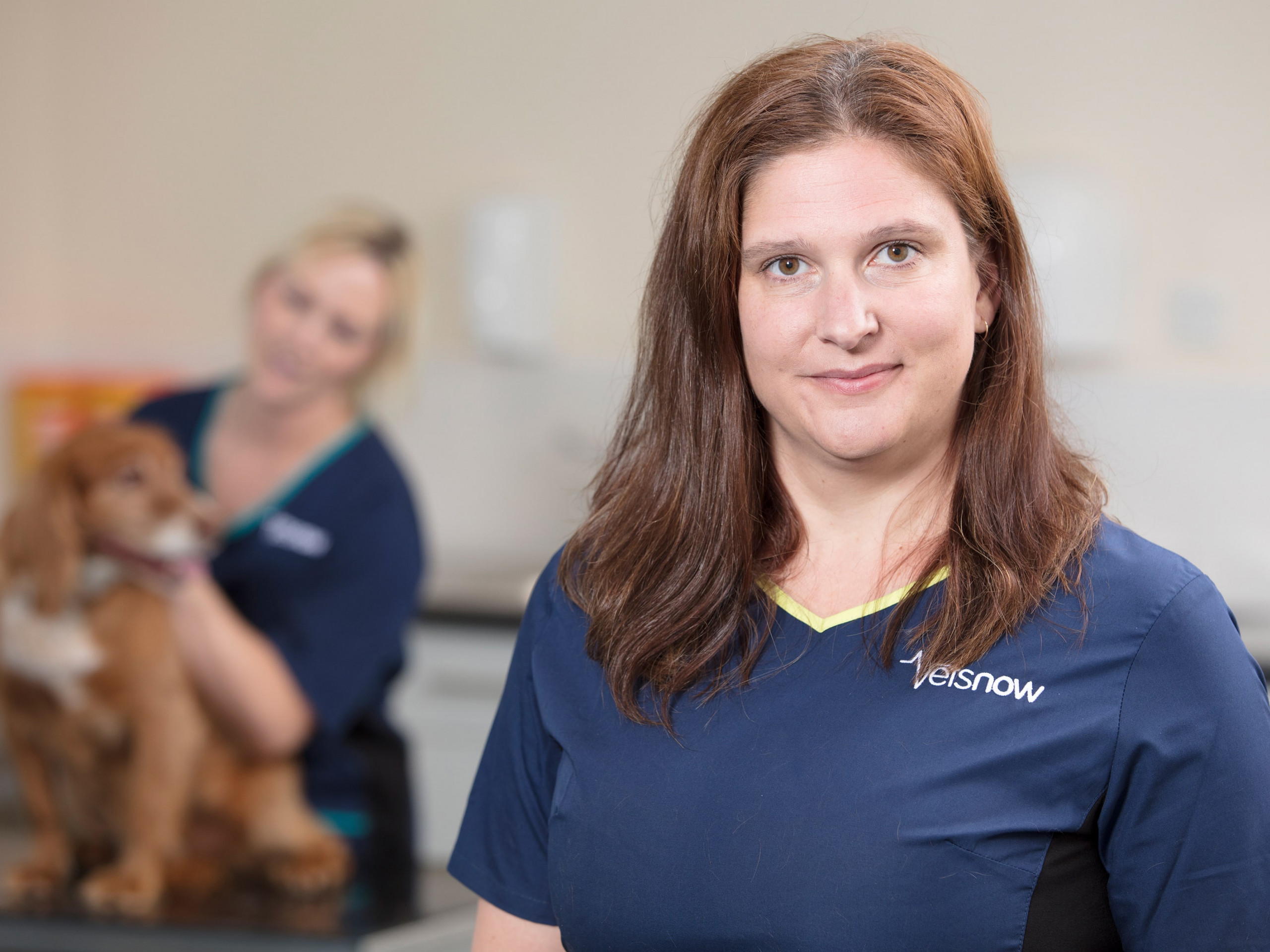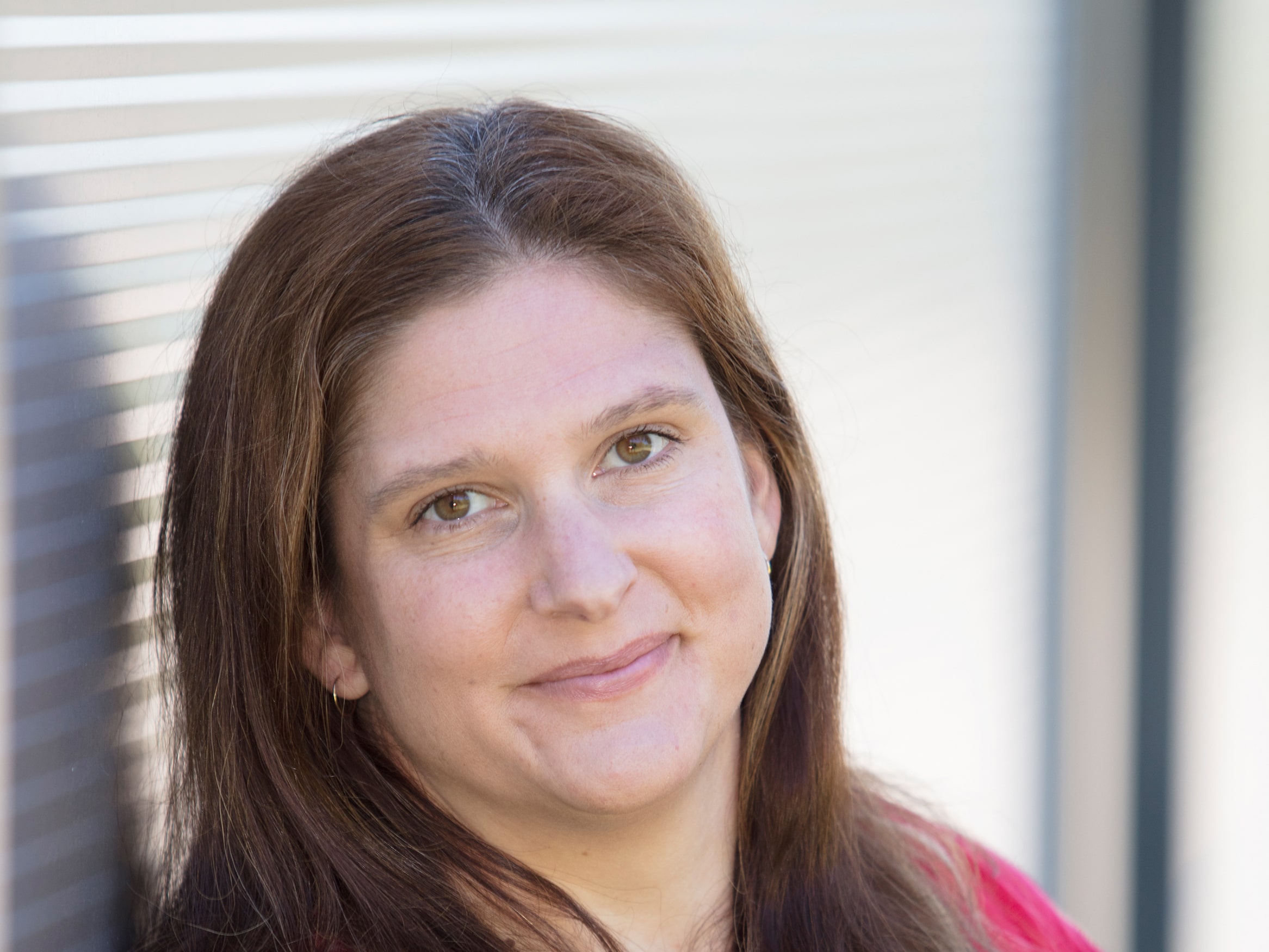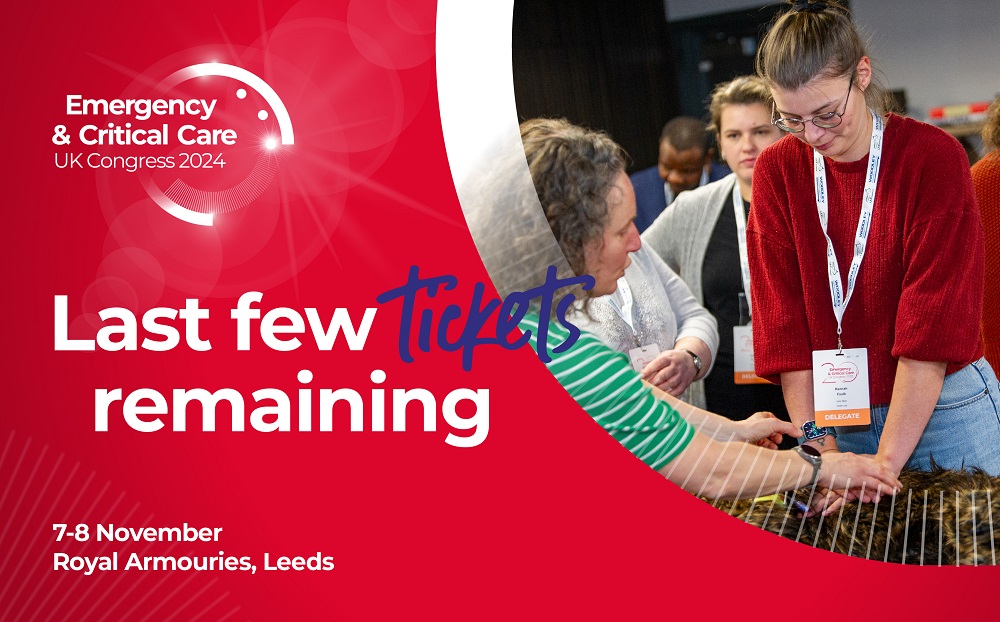Professional standards director on rethinking ‘Gold Standard’ care and euthanasia, building positive relationships with pet owners and the future of Vets Now
In this Q&A, Vets Now’s professional standards director Laura Playforth discusses-among other things-the importance of constructive reflection and kindness among clinic staff, the influence of Amanda Boag, why we should focus less on Gold Standard care and more on optimal patient care, the importance of clear communication with owners and her vision for the future of the company.

Tell me a bit about your role? What does it involve?
As professional standards director, I work with a superb team to deliver our clinical and professional standards strategy across Vets Now.
We focus on quality improvement of the care we deliver, clinical governance, innovative technologies and developing our professional skills, including communication.
What is your vision for Vets Now?
Our vision is to continue to lead the profession in emergency and critical care provision, and also in specialist referrals centred around ECC. We aim to excel in both our clinical and professional skills, including building relationships with the pet owners who entrust their pets into our care and also the fellow professionals we work in partnership with.
We want our patients and their owners to experience the best possible care, tailored to their circumstances and needs, at what is often the most difficult of times for them.
We also want all our staff to have rewarding and enjoyable careers, to not only feel they are at the forefront of delivering an exceptional service, but that they’re constantly developing their own knowledge and skills too.
Laura Playforth Professional standards director, Vets NowWe aim to provide optimal patient care, but to us, that means care that is patient-centred and takes into account the wishes and resource limitations of the pet owners and also the real-world circumstances we find ourselves in.
And your number one priority?
To attract, retain and develop the right people within Vets Now. For me, the right people aren’t necessarily those with the most experience or qualifications-though of course those things are important, what really stands out to me are people’s personal skills.
The skills I feel are the most important for all staff, but particularly working in complex and challenging clinical environments, are constructive reflection and kindness. The ability to reflect on situations, whether they went well or they could have gone better, and to think critically about how things can be improved for the future is the foundation for continual iterative and incremental improvements. I believe reflection and instigating positive change are how we become the very best we can be within our roles.
Kindness also stands out for me. It governs how we behave and how we speak to and about each other. It is at the heart of relationship building, inter professional collaboration, professionalism and delivering the best standards of care to both our patients and their owners.
It’s really important to recognise that the ability to reflect effectively and act and speak from a place of kindness are skills which can be developed, not fixed attribute traits. So behind that it is essential for people to have a desire to continually improve in these areas, and that we support that within our staff development.
It is only with the people with the right skills in place that we can live our values and deliver the service we aspire to.
Will you still work closely with Amanda Boag? Is this important to you and how has Amanda helped shape your own career and outlook?
I am still in regular contact with Amanda. I have been incredibly fortunate during my time at Vets Now to have a number of inspirational line managers and mentors, though Amanda has been the most influential.
She was my line manager for eight years which is my longest line management relationship in my 20 years within the profession. What I value most has been her support and faith in my abilities, and more importantly my potential to continually develop my skills.
She approaches questions and concerns with the right balance of curiosity, kindness and challenge to ensure your thought processes have been robust. As a leader within the company she has, from the outset, led and cemented our learning culture which enables us to innovate and make courageous choices, safe in the knowledge that, succeed or fail, we have made our best efforts and will certainly have learnt plenty for the next time!

You are passionate about ensuring every patient gets the most appropriate level of quality care. How do you define quality care at Vets Now?
What drives us more than any other factor is wanting to provide the best care for our patients and their owners. What can unintentionally distract us from this are pervasive unhelpful cultural norms and urban myths around what high-quality veterinary care should look like, and how it should be delivered.
The first urban myth I would like us to bust is that of ‘Gold Standard Care’. This has been used in the past to describe care which involves doing absolutely everything we can for all our patients.
This type of extreme approach is rarely appropriate. We aim to provide optimal patient care, but to us, that means care that is patient-centred and takes into account the wishes and resource limitations of the pet owners and also the real-world circumstances we find ourselves in.
Patient-centred care involves us considering the health status of the patient, including pre-existing conditions, their likely prognosis and the risks and benefits for each procedure or intervention as it applies to that patient as an individual. Owner resource limitations which lead us to further tailor our care may be financial, they may be time restraints, or they may involve more detailed unique circumstances. ‘Gold Standard Care’ often refers to a blanket approach of ‘doing everything’ which is the opposite to our approach to optimal care, which is always individually tailored.
The second urban myth is around euthanasia as an option to be avoided at all costs, or even as a failure of care. Although the ending of a life inevitably involves sadness, particularly for the pet owners, it also represents the end of suffering. Tailoring care to the individual needs of our patients, their owners and the circumstances we find ourselves in means that euthanasia is a viable option in many cases, and in some cases the only viable option to prevent further suffering.
It is an amazing gift to be able to end suffering in a humane and controlled manner with grieving pet owners, at a mutually agreed time of our choosing. Whatever the factors which lead up to the decision for euthanasia, whether they are due to prognosis, finances or personal circumstances, euthanasia is never a failure of care, it is the final act of care.
Laura Playforth Professional standards director, Vets Now[Pet owners] are part of the care provision team-they will ultimately be accepting or rejecting our recommendations and deciding whether they will act in concordance with our advised home care.
Another of your passions is improving relationships between vets and pet owners. How big a challenge is this? What are you planning to do to achieve this?
This follows on from my previous thoughts on delivering high-quality care. There is a significant degree of polarisation of opinions in many areas of society. This is what I meant when I referred to unhelpful pervasive cultural norms.
We need to be mindful of preventing these from permeating our interactions with pet owners, as building a relationship of trust with clients ultimately results in the best care for our patients.
This is as true for the big welfare issues, such as vaccine hesitance and brachycephalics, as it is for our everyday interactions relating to decision-making around financial limitations and personal circumstances and preferences which may not match our own.
If we make negative judgements about pet owners, their intentions and their choices, evidence demonstrates that not only are we highly likely to be wrong, but judgement significantly damages our ability to empathise with them, which will ultimately impact negatively on the care we are able to provide, and the outcome for and welfare of our patients.
I see our role as professionals to approach with kindness and empathy, listening to the owners’ point of view and making concerted efforts to understand their wishes and capabilities when caring for their pet.
They are part of the care provision team-they will ultimately be accepting or rejecting our recommendations and deciding whether they will act in concordance with our advised home care.
It’s really important if we are to do the best for our patients, that we also do our best with their owners, even when situations can be exceptionally challenging.
What makes Vets Now a unique place to work?
Our people, our culture and our values.
From my very first interview at Vets Now, I felt a sense of belonging, that I had found the culture that fitted with the professional I wanted to be and the care I wanted to provide.
Although many things have progressed and changed over the years, that remains a constant.
Vets Now will soon turn 20. Where do you see it in another 20 years?
We will continue to use technology and the advanced skills and knowledge of our staff to expand and develop our quality improvement processes.
The changes that have the greatest impact on the largest number of our patients are iterative and incremental improvements to our ways of delivering care. Doing what we know, but better, more efficiently and more consistently.
In 20 years’ time, our current quality improvement projects will have made significant improvements in the quality of care provided to over 3 million pets and their owners, a far greater impact than any single technological, surgical or pharmaceutical advance.

